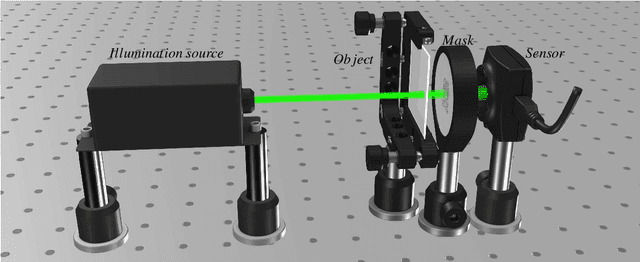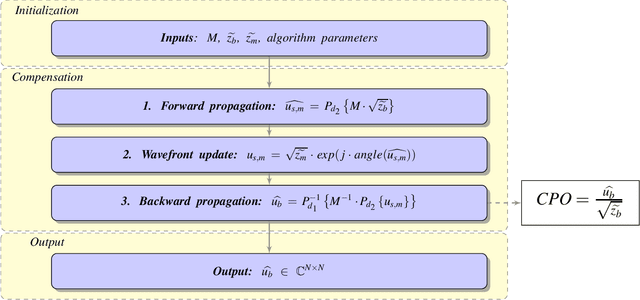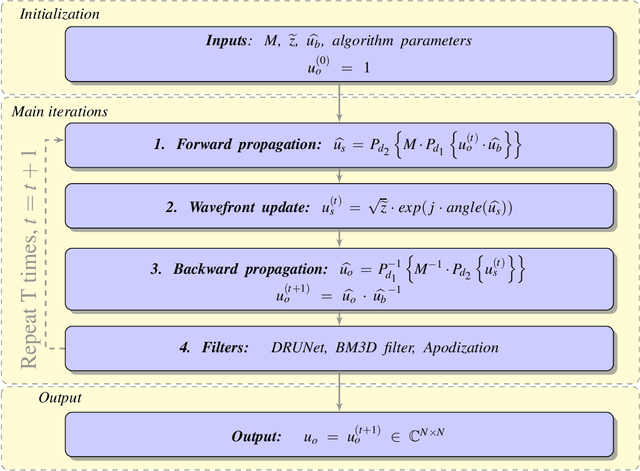Heikki Rekola
SSR-PR: Single-shot Super-Resolution Phase Retrieval based two prior calibration tests
Aug 12, 2021



Abstract:We propose a novel approach and algorithm based on two preliminary tests of the optical system elements to enhance the super-resolved complex-valued imaging. The approach is developed for inverse phase imaging in a single-shot lensless optical setup. Imaging is based on wavefront modulation by a single binary phase mask. The preliminary tests compensate errors in the optical system and correct a carrying wavefront, reducing the gap between real-life experiments and computational modeling, which improve imaging significantly both qualitatively and quantitatively. These two tests are performed for observation of the laser beam and phase mask along, and might be considered as a preliminary system calibration. The corrected carrying wavefront is embedded into the proposed iterative Single-shot Super-Resolution Phase Retrieval (SSR-PR) algorithm. Improved initial diffraction pattern upsampling, and a combination of sparse and deep learning based filters achieves the super-resolved reconstructions. Simulations and physical experiments demonstrate the high-quality super-resolution phase imaging. In the simulations, we showed that the SSR-PR algorithm corrects the errors of the proposed optical system and reconstructs phase details 4x smaller than the sensor pixel size. In physical experiment 2um thick lines of USAF phase-target were resolved, which is almost 2x smaller than the sensor pixel size and corresponds to the smallest resolvable group of used test target. For phase bio-imaging, we provide Buccal Epithelial Cells reconstructed in computational super-resolution and the quality was of the same level as a digital holographic system with 40x magnification objective. Furthermore, the single-shot advantage provides the possibility to record dynamic scenes, where the framerate is limited only by the used camera. We provide amplitude-phase video clip of a moving alive single-celled eukaryote.
 Add to Chrome
Add to Chrome Add to Firefox
Add to Firefox Add to Edge
Add to Edge